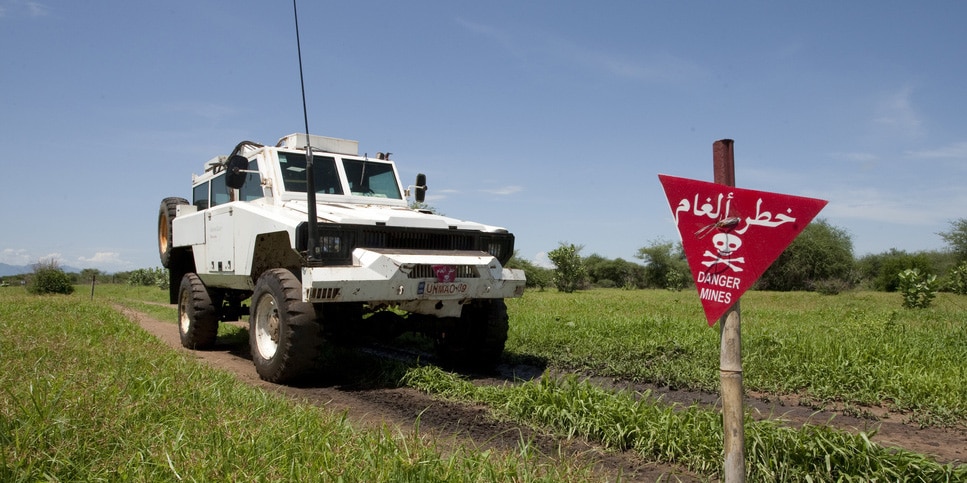In 2019, anti-personnel mines killed 6,897 people. Some 60 countries are contaminated with anti-personnel mines. The situation has not improved since 2018. The majority of victims are civilians, many of them children, according to the Landmine Monitor Report 2019. Even when they are fitted with self-destruct mechanisms, live anti-personnel mines can indiscriminately kill or maim military personnel and civilians and hinder socio-economic development.
Switzerland has been engaged in mine action together with the international community for over 25 years. This has enabled the destruction of 661,491 landmines and the complete clearance of 800 km² of landmine-affected areas over the past five years.
Eradication of anti-personnel mines by 2025
In 1997, the United Nations adopted the Convention on the Prohibition of the Use, Stockpiling, Production and Transfer of Anti-Personnel Mines and on their Destruction. Switzerland was one of the first States to ratify the Ottawa Convention, which now has 164 states parties. The international community – including Switzerland – aims to rid the world of anti-personnel mines by 2025.
"The US decision is a step backwards at the very time when these weapons should no longer be used. The humanitarian consequences are too serious," noted FDFA State Secretary ad interim Krystyna Marty.
International action has saved thousands of lives over the past two decades.
"Switzerland is counting on the United States to continue the fight against these weapons. In addition, it calls on all states that are not yet party to the Ottawa Convention to ratify it with all possible urgency," added State Secretary ad interim Krystyna Marty.
Switzerland among the main donor countries
The Federal Council is implementing its Mine Action Strategy. The Mine Action Strategy of the Swiss Confederation 2016–2022 is based on the internationally recognised definition of humanitarian demining. Switzerland supports the international community's policy efforts, funds specific projects in the affected countries and contributes to expert missions. It is one of the 15 largest donor countries to humanitarian demining activities worldwide. Almost half of Swiss funds are allocated to the Geneva International Centre for Humanitarian Demining (GICHD). Switzerland is also working to ensure that the states parties to the Ottawa Convention fulfil their commitments and comply with the relevant international conventions.

